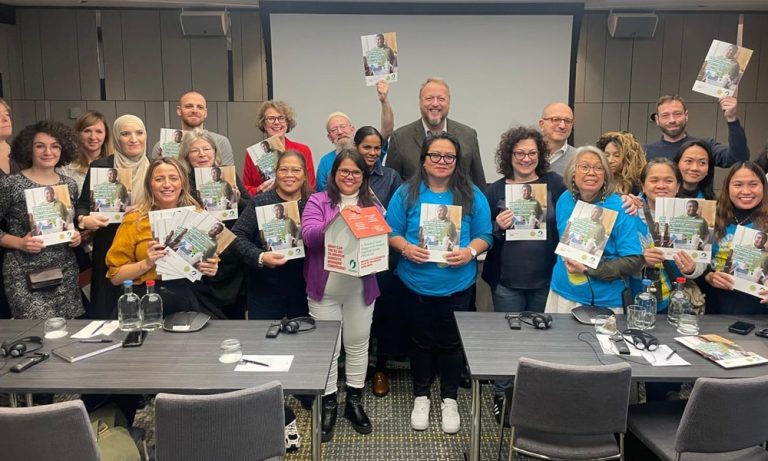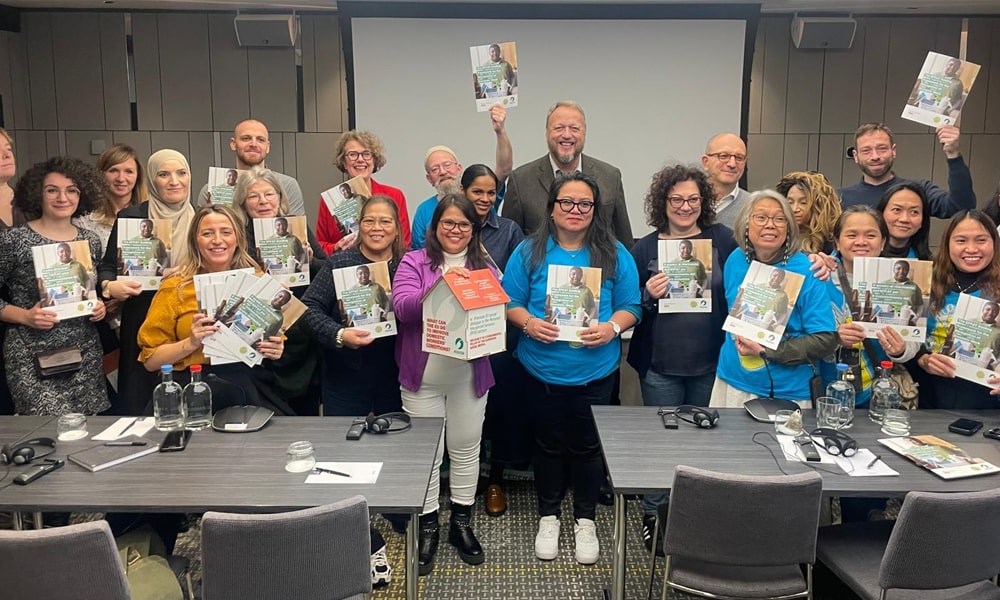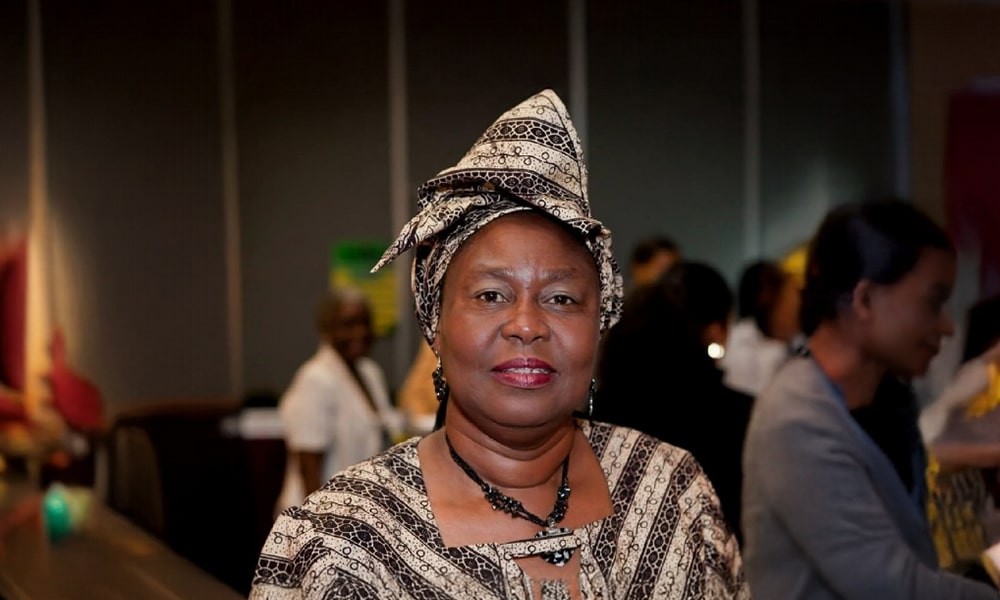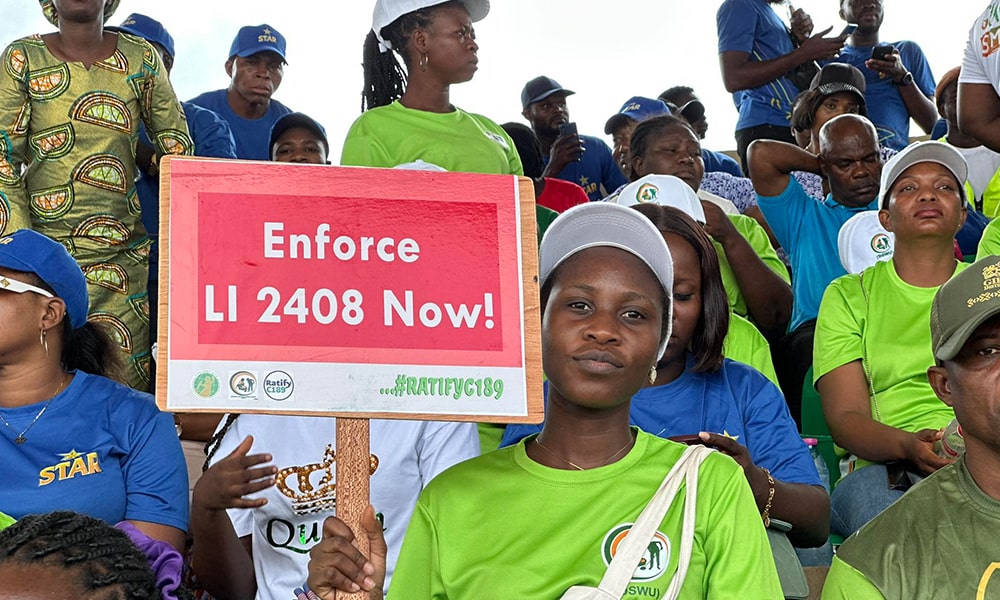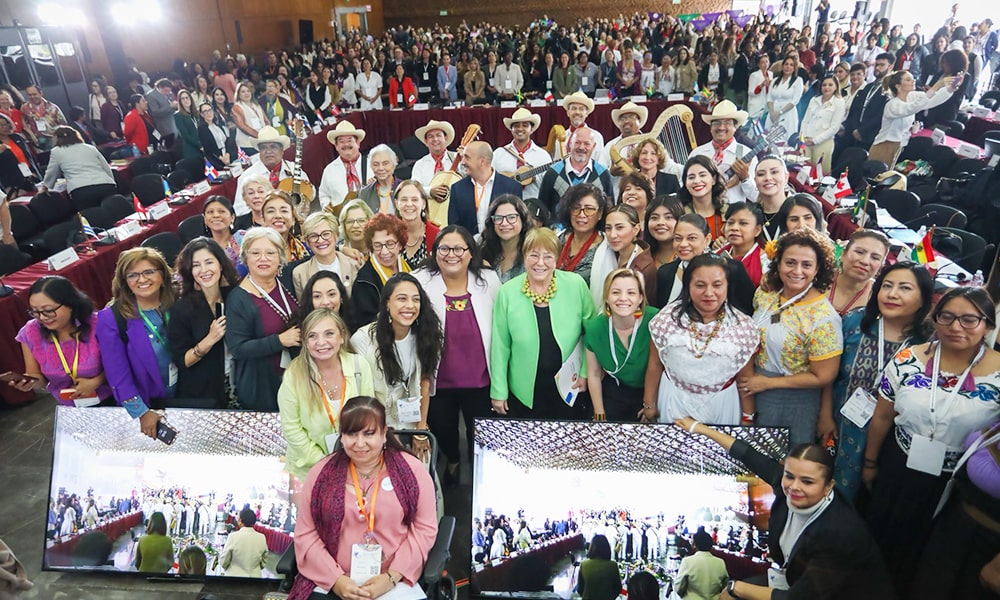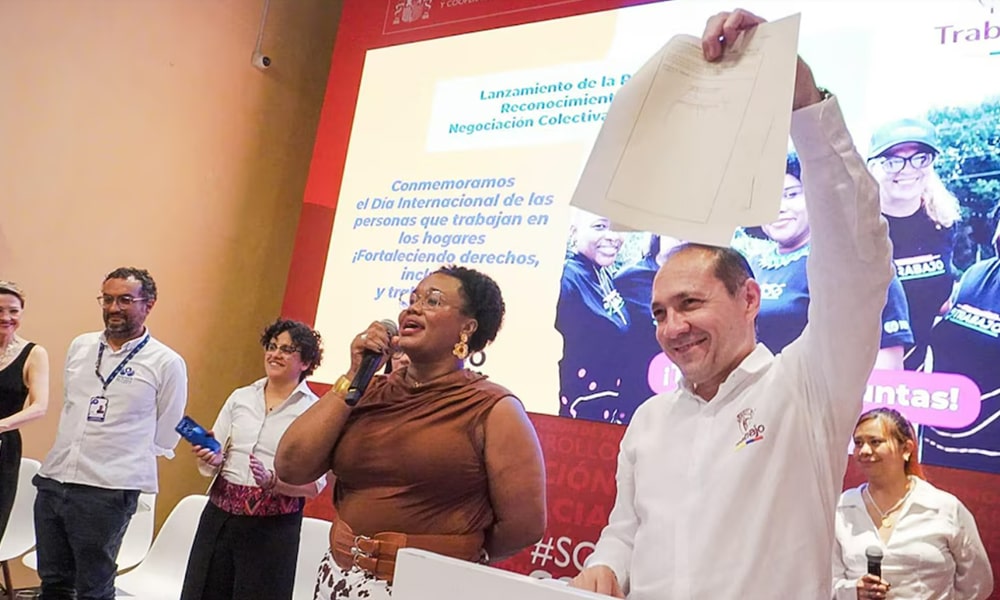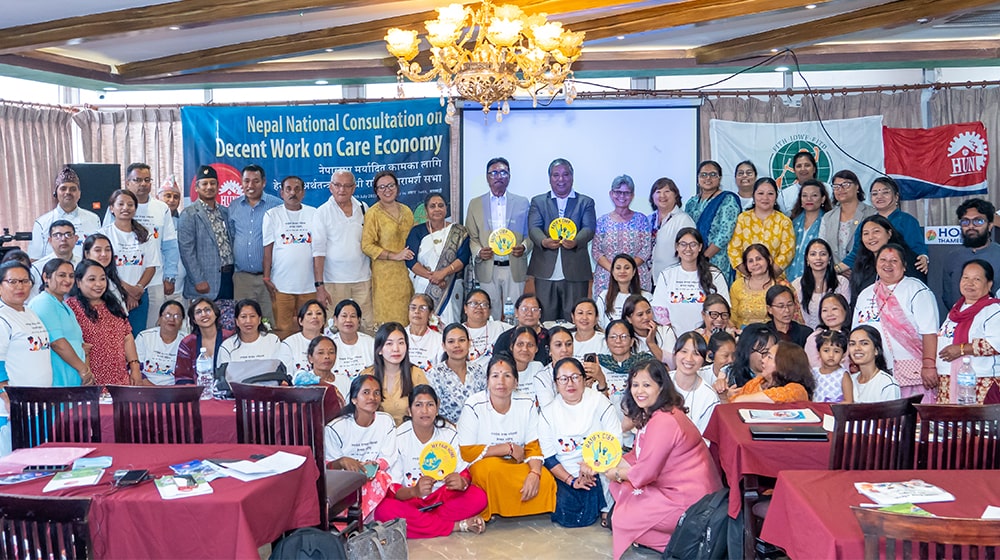Contributors: National Domestic Workers Alliance
Three years ago, our members joined domestic workers from all over the world to win the passage of the International Labor Organization’s Convention 189 on Decent Work for Domestic Workers. It was a historic recognition that domestic workers are entitled to the same rights and respect as other workers. Today, after passing Domestic Workers Bills of Rights in California and Hawai’i, and steady work to pass similar legislation in Massachusetts and Connecticut, our members are back at the International Labor Organization (ILO) in Geneva, this time to expand rights, recognition and respect to all workers in the “informal” sector, and to ensure that no workers are subject to forced labor.
Details
GLOBAL –
Three years ago, our members joined domestic workers from all over the world to win the passage of the International Labor Organization’s Convention 189 on Decent Work for Domestic Workers. It was a historic recognition that domestic workers are entitled to the same rights and respect as other workers.
Today, after passing Domestic Workers Bills of Rights in California and Hawai’i, and steady work to pass similar legislation in Massachusetts and Connecticut, our members are back at the International Labor Organization (ILO) in Geneva, this time to expand rights, recognition and respect to all workers in the “informal” sector, and to ensure that no workers are subject to forced labor.
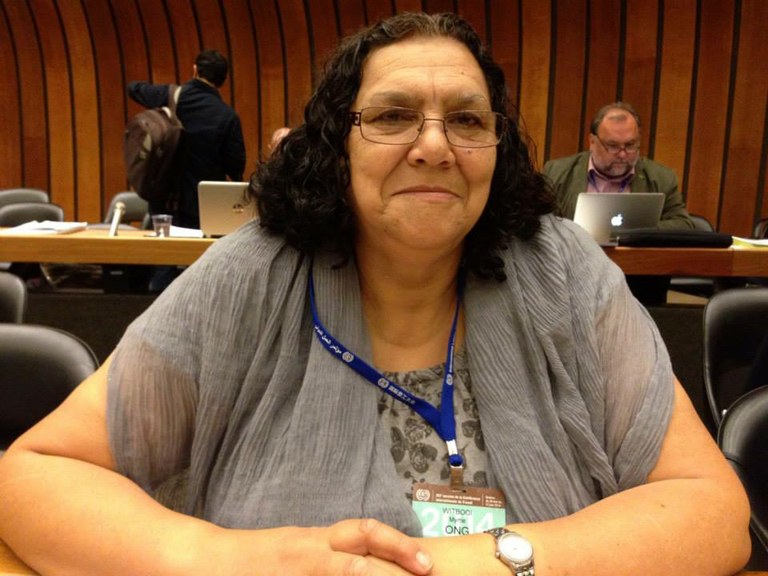
“On June 16, 2011 ILO Convention 189 for Decent Work for Domestic Workers was ours! We laughed, we cried, we celebrated, we are free! Our dignity has been restored. Slaves no more. As of 2014, 15 governments have ratified Convention 189. Today, we are back. This time to ensure that all informal workers are part of decent work. There should be no difference in rights for informal and formal workers. We are all workers!”
– Myrtle Witbooi, President, International Domestic Workers Federation and SADSAWU (South Africa Domestic Service and Allied Workers Union)
Like domestic workers, all informal workers deserve recognition as workers, the right to organize, the protection of labor laws, and the full realization of their rights as workers.
This year, we are here with our sisters and brothers who are taxi drivers, street vendors, home based workers, and waste pickers from the U.S. and across the globe. As part of the United Workers Congress in the U.S., and the International Domestic Workers Federation internationally, we are united to win respect, recognition, and protection for all workers. The participation of informal workers in the ILO negotiations helps ground the discussions in reality and holds the representatives of governments, employers, and workers accountable.
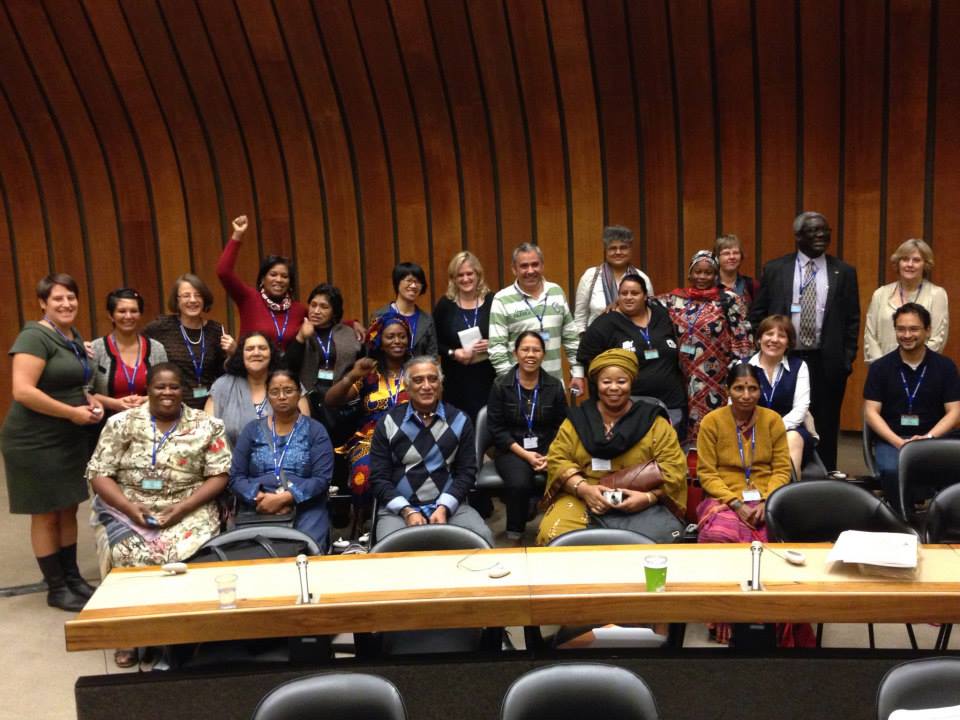
We are also here to participate in updating the ILO Forced Labor Convention (C29) — which was created in 1930, and has not been updated since. Today, nearly 3.5 million domestic workers and 21 million people overall are trapped in forced labor situations around the world. Domestic workers are particularly vulnerable to forced labor. They perform work behind closed doors and in insolation.
They are often migrants outside and inside their countries. They are often exploited, abused, and coerced by private employers and recruitment agencies that profit off their work. This is a historic moment that could make C29 not only relevant to our current economic reality but create real solutions to eradicate trafficking altogether.
Our presence at the negotiating table in Geneva is a sign of the growth, visibility, and power of our movement, and our impact not only nationally but internationally. Stay tuned for updates from Geneva, and follow us on Facebook and Twitter for more news.

